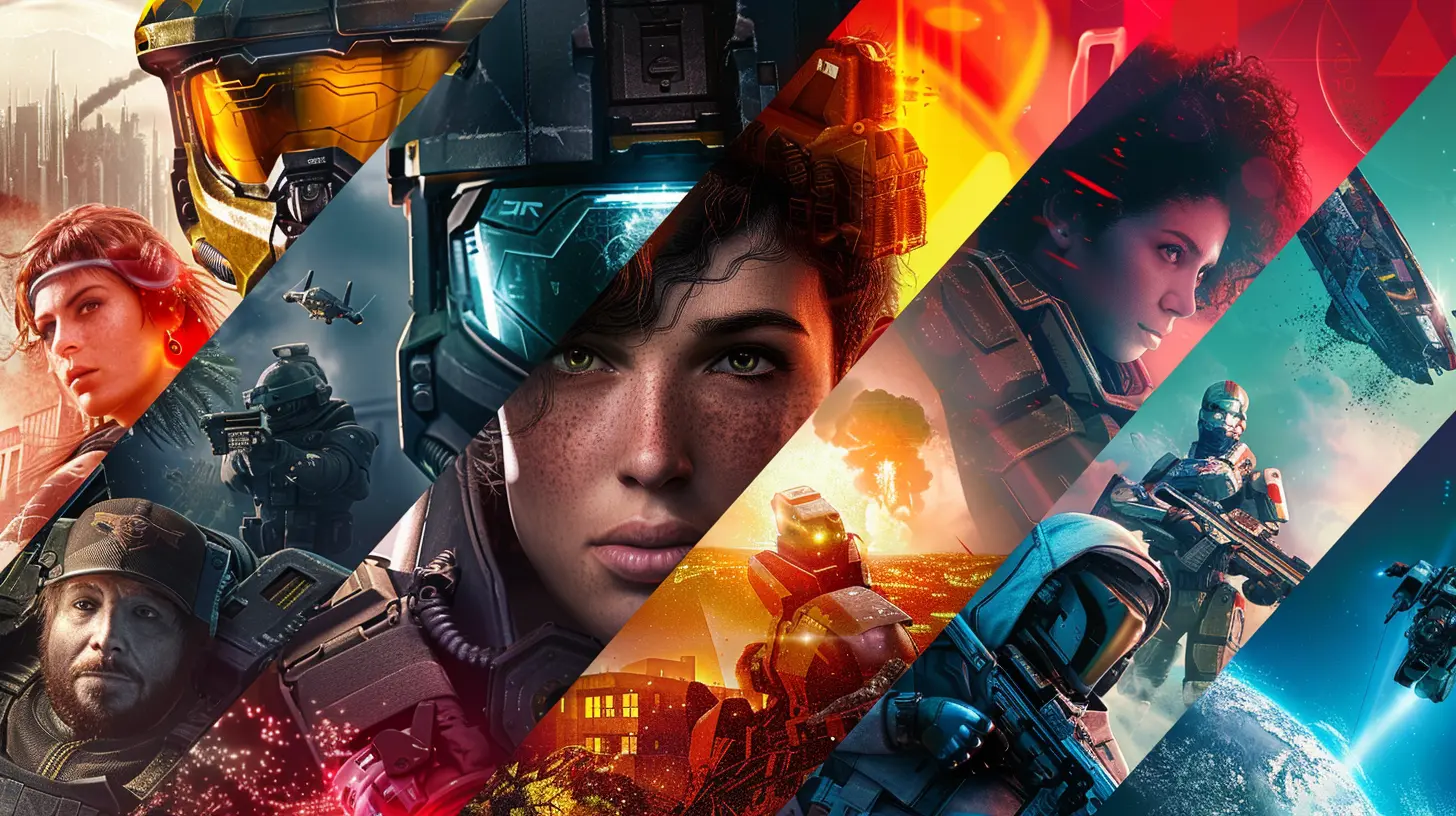The Future of In-Game Advertisements: Annoyance or Innovation?
29 July 2025
Let’s be real — no one boots up their favorite video game thinking, “Wow, I can’t wait for that next in-game ad!” But here we are, in a gaming world that’s steadily shifting from immersive experiences to mini-billboard zones. The question is: are these ads just annoying distractions, or are we on the brink of a new wave of innovative revenue and storytelling strategies?
Let’s unpack the future of in-game advertisements from every angle — the good, the bad, and the surprising.
What Are In-Game Ads, Anyway?
Alright, before we dive deep, let’s clear the air. In-game advertisements are exactly what they sound like — promotional content layered into video games. These can be obvious, like a digital billboard in a racing game flashing a real-world soda brand, or subtle, like branded gear your character can wear.There are also different types:
- Static ads: Fixed into the game during development (think a poster on a stadium wall).
- Dynamic ads: Delivered over the internet and can change in real time.
- Sponsored content: Entire missions, items, or storylines themed around a brand.
It’s not a new concept, but it’s evolving fast — and not always smoothly.
Why Are Game Developers Adding Ads?
Let's be honest. Making games is expensive. Blockbusters like GTA V or Red Dead Redemption 2 cost hundreds of millions to develop. Developers and publishers are always looking for ways to boost revenue without making players cough up more money upfront.Enter in-game advertising.
Here’s the logic:
- More money for developers without raising game prices.
- Free-to-play games need revenue streams, and ads have proven to be profitable.
- Brands love it because gaming is where everyone’s attention is these days.
If you're playing a free game and not paying a cent, ads are what keep the servers running and updates coming.
Where Ads Shine: The Potential for Innovation
Alright, let’s switch lanes for a bit. Ads don’t always have to be awful. When done right, they can actually add to the experience in clever ways. Here’s how:1. Making Worlds Feel More Realistic
Ever played a sports game and seen real-life brands on billboards? That’s immersive! Real stadiums have ads, so why shouldn’t the digital ones? It sells that illusion that you're IN the game, not just playing it.2. Customization and Brand Crossovers
Remember when Travis Scott hosted a virtual concert in Fortnite? Or when you could wear Nike gear in NBA 2K? That's branded content done right — it feels like part of the culture, not a pop-up ad.When ads tie into the theme or style of a game, they feel more like cool extras than selling points.
3. Reward-Based Ads
Another smart move is letting players voluntarily watch ads in return for in-game rewards. You don’t have to, but if you’re low on coins or lives, it’s an option. That’s fair, right?This model is exploding in mobile gaming. It respects player choice and still brings income. Win-win.
When It Goes Off the Rails: The Annoying Side
Let’s not sugarcoat it — a lot of in-game ads are just plain obnoxious.1. Breaking Immersion
Imagine sneaking through a zombie-infested hospital, and bam — a Doritos vending machine perfectly lit in the hallway. Unless zombies are into spicy nacho chips, that’s gonna feel off.Gamers play to escape reality. When ads yank us out of carefully crafted worlds, it kills the vibe.
2. Forced Viewing = Instant Turn-Off
Pop-ups, unskippable ads, and those that play between levels can be the fastest way to uninstall a game. They break momentum and feel like you're watching a commercial break from the ‘90s.Even worse are ads that manipulate you — like fake “close” buttons, or ads that pretend to be part of the gameplay. Not cool.
3. Pay-to-Remove? Feels Like a Shakedown
Some mobile games are essentially glorified ad machines. You get bombarded until you pay to make it stop. That’s not a great user experience — it’s more like digital ransom.The Tech Behind the Trend: What’s Changing?
Tech is evolving, and with it, so is how ads are delivered. We’re not just talking flashing banners anymore.AI-Powered Ads
Artificial intelligence is enabling smarter ad placement. Imagine a game that knows what types of brands you like and tailors ads to fit your interests. Creepy? Maybe. Innovative? Definitely.It’s kind of like Netflix recommendations, but for in-game billboards.
Augmented Reality (AR) and Virtual Reality (VR)
AR and VR are opening up new ad spaces. Think of branded items in a VR shop or AR ads that change based on your surroundings. It’s becoming more interactive and personal.In Pokémon Go, for example, advertisers can sponsor PokéStops or in-game events. It’s subtle and blends in with the gameplay.
Programmatic Advertising
This tech automates ad placements using data. It’s why you see ads for games you just googled. In gaming, it means real-time ad bidding and personalized experiences. Brands get better targeting, and players (hopefully) get more relevant content.Gamers Have Opinions (Spoiler: They're Not Always Happy)
Let’s not forget the heartbeat of the gaming industry — the players.Gamers are vocal. They’ll let companies know when an ad crosses the line, and vocal backlash can be brutal. Remember the Xbox 360 dashboard updates that prioritized ads over function? Yeah, that didn’t go over well.
The gaming community demands respect. Brands that engage without disrupting gameplay tend to earn loyalty. Those that force the issue? Cue the bad reviews.
The Right Way Forward: Balance is Key
At the end of the day, in-game ads aren’t going anywhere. But the way they’re used will determine whether they’re seen as a necessary evil or a creative opportunity.Here’s what developers and advertisers need to keep in mind:
- Respect the vibe. Don’t throw modern ads into historical RPGs.
- Give us control. Let us opt-in for rewards or skip ads entirely if we choose.
- Keep it relevant. Align ads with the game’s audience and tone.
- Don’t overdo it. A clever ad is engaging; five in a row is rage-inducing.
What Gamers Can Do: Speak Up, Vote With Your Wallet
Players have more power than they think. Annoyed with intrusive ads? Leave a review. Love a smart brand crossover? Share it on social.Developers watch the feedback. Bad reception can kill a feature. Positive buzz can lead to more creative partnerships.
If we demand better, smarter advertising, the industry will (eventually) follow.
Looking Ahead: A Glimpse at 2030
Picture this — it’s 2030. You’re playing a futuristic open-world game where every ad adapts to your preferences, is location-aware, and reacts to your in-game actions.Instead of annoying distractions, these ads tell stories. They become clues in puzzles, bargainers in quests, or sponsors of your favorite character’s abilities.
That’s not sci-fi. That’s where we’re headed — if advertisers and game developers play their cards right.
The keyword moving forward? Integration.
Final Thoughts: Annoyance or Innovation?
So, are in-game ads the future of interactive marketing genius or just a cheap cash grab dressed up in pixels?Honestly? It depends.
If handled creatively and respectfully, they could revolutionize how brands connect with gamers. If abused, they risk turning beautiful virtual worlds into digital Times Squares.
For now, players and developers are dancing a fine line between profit and play.
So next time you see an in-game ad, ask yourself: is this just noise, or is it part of the show?
all images in this post were generated using AI tools
Category:
Gaming IndustryAuthor:

Audrey McGhee
Discussion
rate this article
2 comments
Callista Gomez
In-game ads: the fine line between immersion and interruption. If done creatively, they could enhance the experience, but tread carefully—no one wants their epic boss battle interrupted by a pop-up for laundry detergent. Here’s hoping innovation triumphs over annoyance!
October 21, 2025 at 2:35 PM

Audrey McGhee
Thank you for your thoughtful comment! Balancing creativity with immersion is key for in-game ads; they can enhance the experience without disrupting gameplay if approached carefully. Let's hope for more innovative solutions!
Elle Wilcox
Ads: Love them or dread them?
August 7, 2025 at 4:16 PM

Audrey McGhee
Ads can be both an annoyance and an innovation; it depends on their relevance and execution. Engaging ads can enhance the gaming experience, while intrusive ones can disrupt it.


